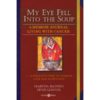The Memoir Writer’s Blog is our on-line magazine. It contains a collection of over 500 stories and articles to inspire you to be a better and more prolific writer and provides the technical knowledge and practice to make this happen.
You can make a success of your memoir writing.
We ought to know: we have worked with thousands of people and have been centrally involved in the production of hundreds of published memoirs.
We’re not going say it’s easy to write a memoir, but we are most definitely going to affirm that you can do it. Huge numbers of people write and finish their memoirs every year. Many have gotten their start by studying the Memoir Writer’s Blog. These people are, for the most part, just like you, people who started to write one day and persevered to the end.
I have learned so much from your blog. There is content for every issue and need a writer might have. Thank you for being so generous with your information.
—Mark Manzone
a memoir writer who is still at it!
Let the Memoir Writer’s Blog—which is our online magazine as well as our online memoir university—help you start, write, finish and publish your memoir as it has helped many others. Go from wannabe to published writer.
Just-in-time learning
The beauty of the Memoir Writer’s Blog is that you can access the information as you need it. Our blog is “just in time learning” at its best.
Before you know it, you will have a memoir in hand—a memoir that you will be proud to share.
If you want to know about what other services we provide besides the Memoir Writer’s Blog, click here.
NB: We also offer a Memoir Professional Blog for people who wish to teach, coach, edit or ghostwrite memoirs.
Memoir Writer’s Blog Posts

Coping With Chemo—Again
Martha Blowen, my partner in life and in work, died on August 18, 2008, from metastasized breast cancer. The following is from collated excerpts of journals we both kept at the time. (Before she passed away, she gave me permission to share her entries.) The memoir is called My Eye Fell Into the Soup, after […]

The Family Gathers Around Martha
Martha Blowen, my partner in life and in work, died on August 18, 2008, from metastasized breast cancer. The following is from collated excerpts of journals we both kept at the time. (Before she passed away, she gave me permission to share her entries.) The memoir is called My Eye Fell Into the Soup, after […]

Our First Evening Coping with Cancer
Martha Blowen, my partner in life and in work, died on August 18, 2008, from metastasized breast cancer. The following is from collated excerpts of journals we both kept at the time. (Before she passed away, she gave me permission to share her entries.) The memoir is called My Eye Fell Into the Soup, after […]

The Pleura Is Full of Fluid
Martha Blowen, my partner in life and in work, died on August 18, 2008, from metastasized breast cancer. The following is from collated excerpts of journals we both kept at the time. (Before she passed away, she gave me permission to share her entries.) The memoir is called My Eye Fell Into the Soup, after […]

Draining the Cancer from the Pleura
Martha Blowen, my partner in life and in work, died on August 18, 2008, from metastasized breast cancer. The following is from collated excerpts of journals we both kept at the time. (Before she passed away, she gave me permission to share her entries.) The memoir is called My Eye Fell Into the Soup, after […]

Historical Present: A Better Relationship to Memoir Story Time
Your relationship to memoir story time
Writers often jumble the use of time in the memoir. The time in which the story unfolds is considered to be the present of the story—often called the “historical present.”
When I write, “She ran into the woods,” the run occurs in the present of the narration—that is the memoir story time. While I have used the past tense (ran), the reader sees the woman running in the mind’s present. We call that the “historical present.”
The reader is always mentally in the present of the story. Following is a line from a text I edited recently. The present of the text is in the spring of the year while the move mentioned in the story was sometime in the past of the story present. That is, it occurred some time previous to what we consider the story present [the historical present].
This is the line the editing client had written, “…a couple of months after I moved into my new apartment…” [Free Membership required to read more. See below. ]
We'd love to have you access this content. It's in our members-only area, but you're in luck: becoming a member is easy and it's free.
Already a Member?
Not a Member Yet?

Marriage in New France: Barthélémi and Marthe Wed
As was the custom in the colony, the wedding was set for a date soon after the contract signing. These were exceptional times. Winter was just three months away, and if Barthélémi and Marthe were to survive the long, cold months at the new farm in Chateau-Richer, there was much to be done. Until she […]

Eight Reasons to Share the Inner You
Our lives are composed not only of facts and dates but also of dreams, expectations–realized or denied–and hopes. You are not alone in having lived an inner life. Others too have experienced much of what you felt and dreamed for yourself and are likely to identify with some, or even much, of what you say. […]

Three Tips For Creating an Effective Writing Schedule
It’s time to commit to creating an effective writing schedule.
You’ve already taken several steps in lifewriting. You have begun to write your stories and memories. Perhaps the summer got in the way of your perseverance or perhaps it was something else—an illness, a temporary job, travel. Now you need to recommit to memoir writing by creating an effective writing schedule for yourself.
Rather than think in the general terms of “I’ll write as much as I can” (who are we kidding here!), base your writing schedule on a specific time or a page quota.
1) Decide how much time per week you want (or have) to devote to writing schedule.
[Free Membership required to read more. See below. ]
